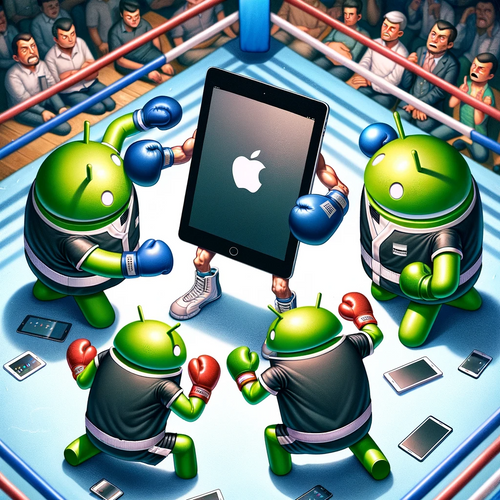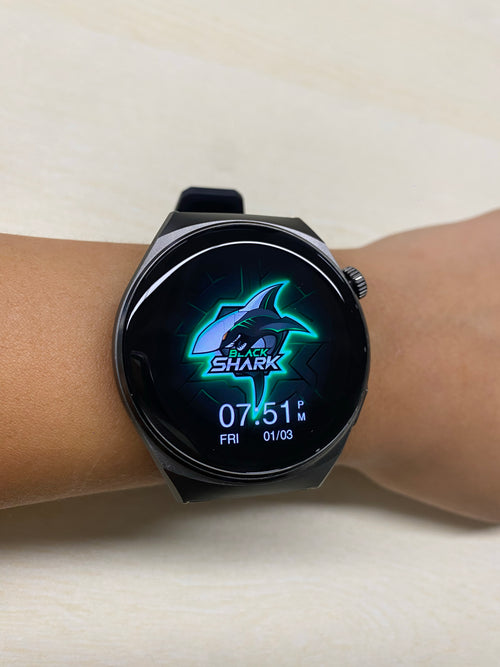HeyWhatsNew: Samsung may soon be able to read your heart rate and new Sony handheld gaming device

What’s up HeyUppers. Welcome to HeyWhatsNew– Your roundup of the latest tech news and developments impacting the world of tech for the week beginning 21/05/2023.
Sony announces handheld device known as Project Q
In a surprising departure from its handheld gaming predecessors like the PSP and PS Vita, Sony's latest offering, codenamed Project Q, diverges from the traditional mold. Disappointingly for handheld gaming enthusiasts, Project Q is not a standalone device but rather a conduit for game streaming.
The device relies on the user's PS5 console, requiring them to download desired games to the console beforehand, which are then streamed to Project Q through a Wi-Fi connection.
Netflix cracks down on password sharing
In an email, which began circulating on Tuesday, Netflix emphasized the company's stance on account sharing and offered subscribers various options to comply with the updated policy. The correspondence reiterated that a Netflix account should be exclusive to the primary subscriber's household, and urges users to consider the available alternatives for sharing their account with individuals outside of their immediate living arrangement.
Netflix has now outlined two options. The first option permits users to transfer a profile to a newly created membership, which would be independently paid for by the additional account holder. The second alternative allows subscribers to include an extra member to their existing account, albeit with a supplementary monthly fee of $7.99.
Spotify using AI to create voice targeted ads
During a recent episode of "The Bill Simmons Podcast," Bill Simmons, the founder of The Ringer, a podcast network owned by Spotify, revealed intriguing insights into Spotify's forthcoming AI endeavors. Simmons disclosed that Spotify is actively developing artificial intelligence tools with the capability to replicate the voices of podcast hosts.
This novel AI initiative is part of Spotify's broader strategic plan to leverage advanced technology in the realm of advertisement. By utilizing AI to read advertisements, Spotify says it aims to enhance the advertising experience for its extensive user base.
Samsung demos OLED panels that can test users, heart rate, blood pressure and even stress levels.
A cutting-edge sensor integrated into the OLED screen now boasts the remarkable ability to detect fingerprints across the entire display, offering users a quicker and more convenient method of unlocking their phones using biometric authentication.
Yet, the implications of this advancement go beyond mere fingerprint recognition. Equally captivating is the sensor's capacity to measure vital health parameters directly from the user's fingers, including heart rate, blood pressure, and stress levels. This groundbreaking technology operates by analyzing the subtle changes in the OLED screen's light as it responds to the contraction and relaxation of blood vessels within the finger.
Whatsapp rolls out ability to edit messages 15 minutes after they are sent.
In a significant update to its platform, the popular messaging service owned by Meta, announced on Tuesday that users would now have the ability to edit their messages within a 15-minute timeframe after sending. This feature will grant individuals the flexibility to make necessary adjustments to their messages, ranging from simple typographical errors to providing additional context, enhancing the overall user experience.
Once an edited message is submitted, it will be displayed in the chat with a conspicuous "edited" label, indicating that modifications have been made. However, the edit history itself will not be visible to other participants in the conversation, preserving the fluidity of the interaction without unnecessarily burdening users with an exhaustive record of revisions.
Some blue-check Twitter accounts spread AI image of an explosion at the Pentagon
In a worrying turn of events, a number of influential Twitter accounts, verified and boasting substantial followings, propagated false information on Monday regarding an alleged explosion in close proximity to the Pentagon. These accounts, including the likes of @WarMonitors, @BloombergFeed, and RT, shared an image accompanied by a caption stating the occurrence of an explosion near the Pentagon. Notably, the image in question appears to have been generated by artificial intelligence (AI).
The image, meticulously created by AI, showed a huge cloud of gray smoke juxtaposed against a white government edifice, lending an air of authenticity to the false narrative being disseminated. As these verified accounts lent credence to the misinformation, unsuspecting users were confronted with a distorted portrayal of events, sowing confusion and potentially inciting panic among those who encountered the posts.
Blizzard's chief design officer told staff to prepare to be amazed by its AI image generator
Blizzard, the popular gaming company, is ready to bring in a wave of innovative AI technology, according to reports. In an email obtained by The New York Times, Allen Adham, Blizzard's chief design officer, urged employees to brace themselves for the forthcoming unveiling of 'Blizzard Diffusion,' an internal AI tool that has purportedly been trained as an image generator using Blizzard's own titles.
Revealing tantalizing possibilities, Adham disclosed that Blizzard Diffusion was being utilized to generate concept art for game environments, as well as characters and their attires. However, the email suggested more than visual enhancements, hinting at a range of other potential applications for this AI-driven tool.
Adham teased the potential for autonomous and intelligent in-game non-player characters (NPCs), procedurally assisted level design, and AI-assisted functions such as voice cloning, game coding, and anti-toxicity measures. The prospect of such advancements could reshape the gaming landscape and revolutionize the way players interact with virtual worlds.




























